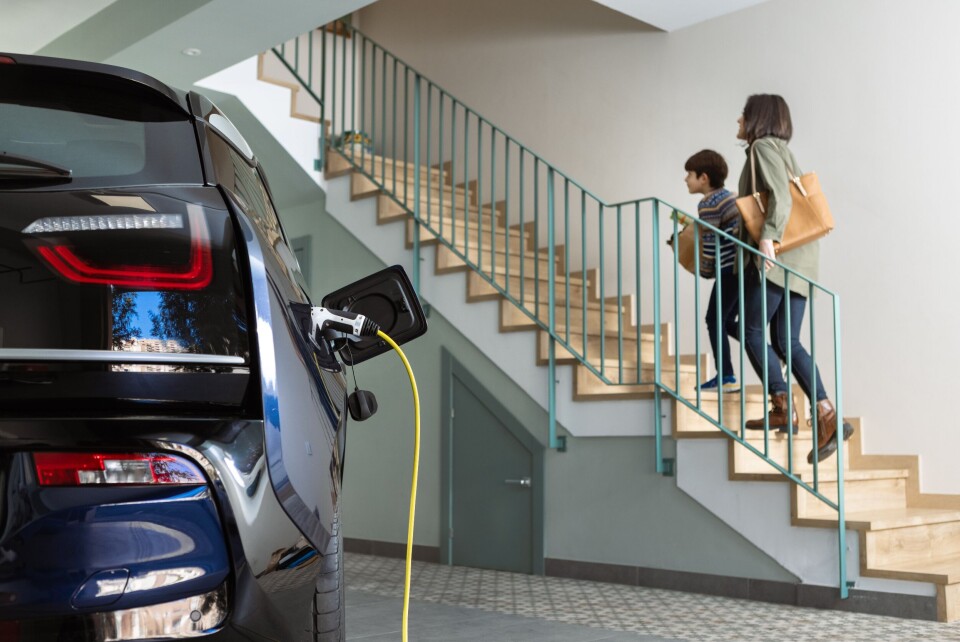-
How accurate are time estimates for French hiking paths?
Mathematical formula is basis for sign figures
-
My French cleaner is too familiar with me
Columnist Cynthia Spillman advises a reader on setting boundaries
-
Travelling during a residency card renewal: how can I show I am exempt from EES?
Tens of thousands of ‘Brexit’ cards are nearing expiry this year
What are options to install electric car charge point at French home?
We also look at financial help available

Reader Question: I want to buy an electric car but live in a rural area. What are my options for installing a charging station at my house?
Electric cars are becoming more popular in France – in 2022 over 13% of new car sales were electric vehicles. With the growing number of these cars on the road comes the need for charging infrastructure, both in public and in homes.
Whilst installation of charging points in public spaces is increasing thanks to new laws, the good news in regard to your question is that there are no regulations regarding setting up an electric car charging port at your home – the only constraints are your budget and your electrical supply capacities.
Three options are available
Charging your car at home can be done in one of three ways: via a standard domestic plug socket, a special reinforced plug socket for charging electric cars, or a specially-mounted ‘wallbox’.
When using a domestic plug socket, it can take around 20 hours to charge a car, and you should have an electrician check the electrical installation before hooking your car up to charge.
Note that it is not recommended to plug in your electric vehicle using an extension cord, as this could be dangerous.
Reinforced plug sockets cost between €50 and €200 online, and can be used to cut down on charging times (by 35% according to energy supplier Engie) and to prevent overheating.
Wall-mounted charging points are the most expensive, costing a few hundred euros, but they cut the charging time down to a few hours, and are a specific piece of infrastructure dedicated to charging your car (as opposed to merely using a spare plug socket in your home or garage).
For installations over 3.7 kilowatts (which includes all wall chargers), the installation must be carried out by a professional, who can hook the installation up to your electrical mains.
One thing to note is that if you do not have your own private garage, it may be more difficult to charge your vehicle, as you will need access either to a plug socket or a wall.
Some communal parking facilities will have shared charging stations you can use, however, and for new residential car parks with more than 10 spaces, at least one car parking space must be equipped with electrical charging equipment.
Financial assistance
There are government schemes designed to help homeowners and tenants to install charging points. You can notably apply for a tax credit worth 70% of the cost of the installation, up to €300.
It is also possible to benefit from a reduced rate of VAT – 5.5% rather than the standard 20% – for the charger.
Read more: Tax breaks continue for installing electric car home charger in France
People who live in a shared residential building and have a dedicated parking space can receive a grant worth 50% of the total cost, up to €960. Further grants may be available at local level.
Related articles
Fast electric car charger designed in France can send power to grid
Do foreign cars need to obtain a Crit’Air sticker to drive in France?
























